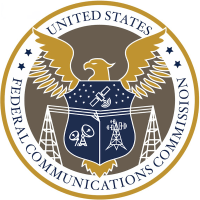
Today Federal Communications Commission Chairwoman Jessica Rosenworcel shared with her colleagues a new agency proposal that, if adopted, would look into whether the agency should require disclosure when there is AI-generated content in political ads on radio and TV. With the circulation of this Notice of Proposed Rulemaking and the subsequent support of her colleagues, the FCC would initiate a proceeding that recognizes consumers’ right to know when AI tools are being used in the political ads they view.
If adopted, this proposal aims to increase transparency by:
· Seeking comment on whether to require an on-air disclosure and written disclosure in broadcasters’ political files when there is AI-generated content in political ads,
· Proposing to apply the disclosure rules to both candidate and issue advertisements,
· Requesting comment on a specific definition of AI-generated content, and
· Proposing to apply the disclosure requirements to broadcasters and entities that engage in origination programming, including cable operators, satellite TV and radio providers and section 325(c) permittees.The proposed FCC proceeding does NOT propose any prohibition of such content, only the disclosure of any AI-generated content within political ads.
“As artificial intelligence tools become more accessible, the Commission wants to make sure consumers are fully informed when the technology is used,” said Chairwoman Rosenworcel. “Today, I’ve shared with my colleagues a proposal that makes clear consumers have a right to know when AI tools are being used in the political ads they see, and I hope they swiftly act on this issue.”
The use of AI is expected to play a substantial role in the creation of political ads in 2024 and beyond, but the use of AI-generated content in political ads also creates a potential for providing deceptive information to voters, in particular, the potential use of “deep fakes” – altered images, videos, or audio recordings that depict people doing or saying things that did not actually do or say, or events that did not actually occur.
The Bipartisan Campaign Reform Act provides the Commission with authority regarding political advertising. There is also a clear public interest obligation for Commission licensees, regulatees, and permittees to protect the public from false, misleading, or deceptive programming and to promote an informed public – and the proposed rules seek to achieve that goal.
Proposals shared on circulation are adopted after a majority of Commissioners vote in their favor. It is at each Commissioner’s discretion as to when they vote an item on circulation. If adopted, this proposal would launch a proceeding during which the Commission would take public comment on the proposed rules.
